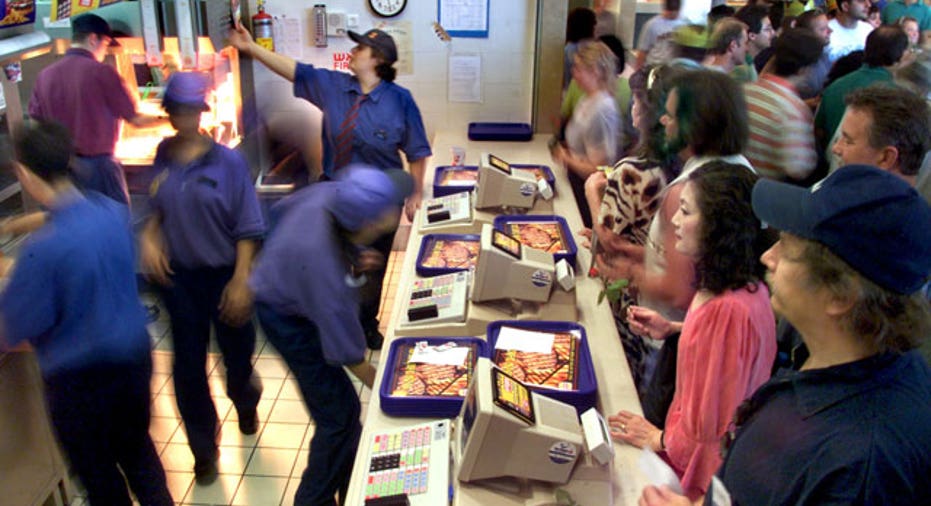Two Sides of the Minimum Wage Debate: Employer vs. Employee

Joe Olivio is in a tough spot. He already provides health insurance to his 48 workers, but he’s battling rising costs under health-care reform and is now worried about how the president’s latest call to raise the minimum wage will impact his budget.
The president urged Congress in his State of the Union address to raise the federal minimum wage to $9 an hour from $7.25.
Olivio’s workers at Perfect Printing in Malboro, N.J. make around $10 an hour depending on experience, but if the minimum wage goes up to $9, that will push up Olivio’s entire wage scale—a move he can’t afford.
“Even though they’re not making [above] the federal minimum wage, their pay automatically goes up,” he says. “My workers who are temporary, they would rightfully want an increase in pay too. This upsets my entire wage scale.”
Olivio has run his family’s business for 25 of its 35 years of operation and plans to continue offering health-care benefits going into 2014, but he says the minimum wage hike will only complicate an already costly scenario.
“This [hike] is really pushing the line. This minimum wage move would hurt my business, but it also winds up hurting the same people it’s trying to help, because it would cause me to potentially eliminate jobs.”
However, the other end of the spectrum welcomes the pay increase.
Nineteen-year-old Brittany Wlodkowski works full-time at sporting retailer Champs in Bridgewater, N.J., and says the increase will make her life easier and that she would risk getting her hours cut because the move would allow her to save more money for mortician school, which she hopes to attend this spring.
“Minimum wage is not enough for what we do out there. I want to go to school and start my career, and $7.25 an hour isn’t getting me anywhere,” she says.
Before taxes, a person working a 40-hour work week at $9 an hour would bring home $360 , compared to $290 for a 40-hour week at $7.25. Subtracting taxes at the federal rate of 15% only, the $9-per-hour worker brings home $306, while the $7.25-per-hour worker brings home $246.50.
The minimum wage hike would be $59.50 more weekly per worker, not accounting for city and state taxes to be factored in. That cash can make all the difference—for better or for worse.
Stephen Heyers, a graduate student at John Jay College is currently earning minimum wage serving at Applebee’s. He likes the idea of a bigger paycheck, but isn’t convinced the bump would really help him. “I’m concerned about them cutting my hours back. But it also means I could make the same and spend less time there. People who have bad spending habits making $7.25 an hour will still have those bad habits at $9 an hour.”
Patricia Orzano has owned her 7-11 on Long Island for more than 40 years and pays her 12 employees a range of wages, starting at the federal minimum of $7.25 an hour. Those with more experience can make between $8 and $9 hourly, she says.
She echoes Olivio’s concern that the $1.75 hike would increase her entire pay scale.
“Why should they accept the minimum [at $9] when they have more experience?” Orzano says. “We will have to reduce hours, cut back seasonal hires and employees will have to work harder to maintain the operation.”
She says her business only makes between four and five cents in profit on every dollar it brings in, so raising the minimum wage and accounting for inflation is unfair. The move would likely lead to her cutting hours instead of raising prices.
Orzano says that the majority of the people she pays minimum wage to are teens and students without the responsibility of caring for a home or family. She says while most of her workers have health insurance, she does offer it to those who don’t have access.
“They are students or this is a second job,” she says. “I don’t know anywhere in the country where you can support a family on minimum wage.”



















